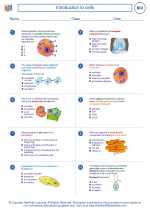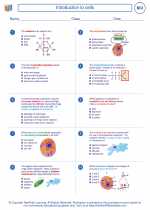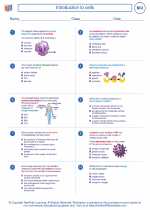Carrier in Genetics
In genetics, a carrier refers to an individual who carries a genetic mutation or alteration that does not typically show any signs or symptoms of the genetic disorder. Carriers are often unaffected by the disorder themselves, but they have the potential to pass the genetic mutation to their offspring.
How Carriers Are Identified
Carriers are often identified through genetic testing, which can reveal the presence of specific mutations associated with particular genetic disorders. In some cases, carriers may have a family history of a genetic disorder, prompting further investigation and testing to determine carrier status.
Examples of Carrier Conditions
Some common examples of carrier conditions include:
- Cystic Fibrosis: Carriers of the cystic fibrosis gene may not show symptoms of the disease, but if both parents are carriers, their children have a risk of inheriting the disorder.
- Sickle Cell Anemia: Carriers of the sickle cell gene may not have the disease themselves, but they can pass the gene to their children, potentially resulting in the disorder.
Implications for Reproduction
Understanding carrier status is important for family planning and reproductive decision-making. In some cases, prospective parents may undergo genetic testing to assess their carrier status for particular conditions, especially if there is a family history of a genetic disorder. This information can help individuals make informed choices about family planning and consider options such as genetic counseling or prenatal testing.
Study Guide
To study the concept of carriers in genetics, consider the following key points:
- Define the term "carrier" in the context of genetics.
- Explain how carriers may be identified, including the role of genetic testing and family history.
- Discuss examples of genetic disorders for which carrier status is significant, such as cystic fibrosis and sickle cell anemia.
- Explore the implications of carrier status for family planning and reproductive decision-making.
◂Biology Worksheets and Study Guides High School. Introduction to cells

 Worksheet/Answer key
Worksheet/Answer key
 Worksheet/Answer key
Worksheet/Answer key
 Vocabulary/Answer key
Vocabulary/Answer key
 Vocabulary/Answer key
Vocabulary/Answer key
 Vocabulary/Answer key
Vocabulary/Answer key
 Vocabulary/Answer key
Vocabulary/Answer key
